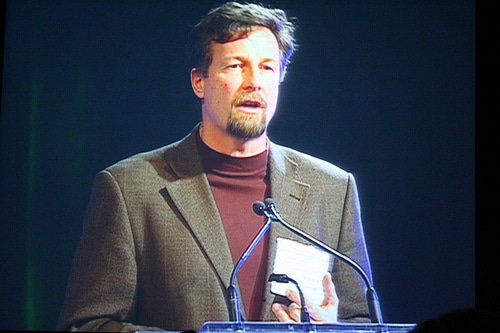“I know this sounds cynical. But politicians implementing a carbon tax face a great risk that unscrupulous political opponents will mislead the public by claiming we can reduce emissions without taxing gasoline, conveniently failing to mention that their cap-and-trade alternative should have the same upward effect on its price for the same emissions reductions.”
That quote is from an opinion piece in the Vancouver Sun today on BC climate policy and the current BC election, by Simon Fraser University economist Dr. Marc Jaccard.
Jaccard writes:
“A recent B.C. NDP press release states that Canada’s National Roundtable on the Environment and the Economy (on which I serve) “clearly supports” the NDP’s climate policy proposal to scrap the carbon tax and that I am Premier Gordon Campbell’s ‘top adviser’ on B.C.’s carbon tax. Neither of these statements is true.”
While the BC NDP will no doubt try and paint Jaccard, an internationally respected academic on climate policy, as some how in bed with the BC Liberal government, the reality is that Jaccard has worked to advise the BC government for many years, including previous NDP ones.
As Jaccard rightly point out:
“Of course, the NDP did not call me Campbell’s ‘top adviser’ from 2001 to 2006 when I repeatedly criticized his ineffective climate policies of that period. But now that I am applauding his recent climate policies and sharply criticizing the NDP’s alternatives, their strategy is to claim I am no longer independent.”
On the issue of the NDP’s National Rountable claim, Bob Page, the Chair of the National Roundtable had this to say in an interview on CKNW’s Bill Good show:
Bill Good: So what both [the carbon tax and cap and trade] attempt to do is put a price on the use of carbon?
Bob Page: That is correct and if people have to pay that price, they’ll try and avoid it by actually changing what they do.
Good: So is one better than the other?
Page: Well a carbon tax is more certain in terms of the dollar figure and a cap and trade is more certain in the volumes that you’re cutting. So some in industry like the idea of the [carbon] tax, many others in industry like the entrepreneurial aspects that are involved in a cap and trade system.
Good: There seems to be a feeling here in BC that the carbon tax hits the consumer and leaves industry off the hook and a cap-and-trade system is more inclined to capture the carbon waste of industry and not punish the consumer whereas the carbon tax hits us every time we fill up at the pump.
Page: Well I think that the plain truth here is that [the] key feature here is the price – and the price is going to be paid for by the consumer one way or another and I don’t see that as the major difference between the two systems. And whatever happens, carbon management is going to generate costs for the economy and the consumer.
You can read Dr. Jaccard’s entire column here: Voters being misled on climate policy
Subscribe to our newsletter
Stay up to date with DeSmog news and alerts






